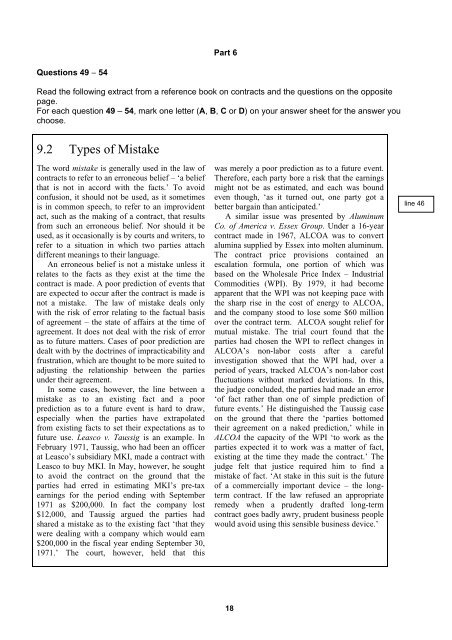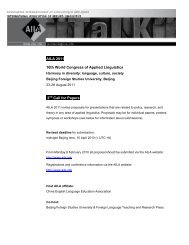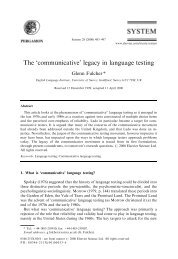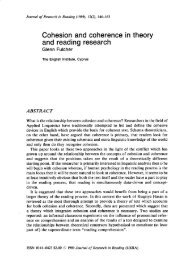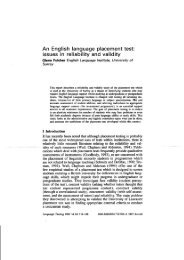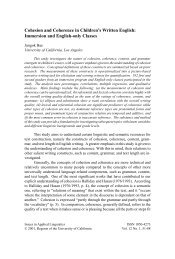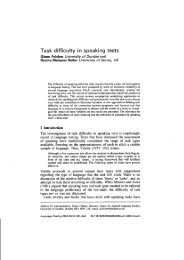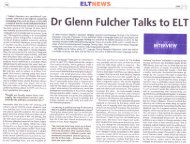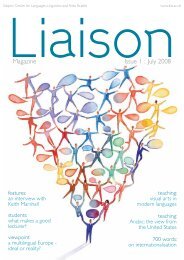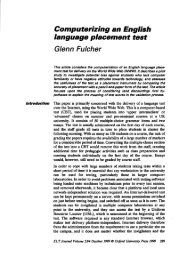International Legal English Certificate Sample Exam Papers
International Legal English Certificate Sample Exam Papers
International Legal English Certificate Sample Exam Papers
- No tags were found...
Create successful ePaper yourself
Turn your PDF publications into a flip-book with our unique Google optimized e-Paper software.
Part 6Questions 49 − 54Read the following extract from a reference book on contracts and the questions on the oppositepage.For each question 49 – 54, mark one letter (A, B, C or D) on your answer sheet for the answer youchoose.9.2 Types of MistakeThe word mistake is generally used in the law ofcontracts to refer to an erroneous belief – ‘a beliefthat is not in accord with the facts.’ To avoidconfusion, it should not be used, as it sometimesis in common speech, to refer to an improvidentact, such as the making of a contract, that resultsfrom such an erroneous belief. Nor should it beused, as it occasionally is by courts and writers, torefer to a situation in which two parties attachdifferent meanings to their language.An erroneous belief is not a mistake unless itrelates to the facts as they exist at the time thecontract is made. A poor prediction of events thatare expected to occur after the contract is made isnot a mistake. The law of mistake deals onlywith the risk of error relating to the factual basisof agreement – the state of affairs at the time ofagreement. It does not deal with the risk of erroras to future matters. Cases of poor prediction aredealt with by the doctrines of impracticability andfrustration, which are thought to be more suited toadjusting the relationship between the partiesunder their agreement.In some cases, however, the line between amistake as to an existing fact and a poorprediction as to a future event is hard to draw,especially when the parties have extrapolatedfrom existing facts to set their expectations as tofuture use. Leasco v. Taussig is an example. InFebruary 1971, Taussig, who had been an officerat Leasco’s subsidiary MKI, made a contract withLeasco to buy MKI. In May, however, he soughtto avoid the contract on the ground that theparties had erred in estimating MKI’s pre-taxearnings for the period ending with September1971 as $200,000. In fact the company lost$12,000, and Taussig argued the parties hadshared a mistake as to the existing fact ‘that theywere dealing with a company which would earn$200,000 in the fiscal year ending September 30,1971.’ The court, however, held that thiswas merely a poor prediction as to a future event.Therefore, each party bore a risk that the earningsmight not be as estimated, and each was boundeven though, ‘as it turned out, one party got abetter bargain than anticipated.’A similar issue was presented by AluminumCo. of America v. Essex Group. Under a 16-yearcontract made in 1967, ALCOA was to convertalumina supplied by Essex into molten aluminum.The contract price provisions contained anescalation formula, one portion of which wasbased on the Wholesale Price Index – IndustrialCommodities (WPI). By 1979, it had becomeapparent that the WPI was not keeping pace withthe sharp rise in the cost of energy to ALCOA,and the company stood to lose some $60 millionover the contract term. ALCOA sought relief formutual mistake. The trial court found that theparties had chosen the WPI to reflect changes inALCOA’s non-labor costs after a carefulinvestigation showed that the WPI had, over aperiod of years, tracked ALCOA’s non-labor costfluctuations without marked deviations. In this,the judge concluded, the parties had made an error‘of fact rather than one of simple prediction offuture events.’ He distinguished the Taussig caseon the ground that there the ‘parties bottomedtheir agreement on a naked prediction,’ while inALCOA the capacity of the WPI ‘to work as theparties expected it to work was a matter of fact,existing at the time they made the contract.’ Thejudge felt that justice required him to find amistake of fact. ‘At stake in this suit is the futureof a commercially important device – the longtermcontract. If the law refused an appropriateremedy when a prudently drafted long-termcontract goes badly awry, prudent business peoplewould avoid using this sensible business device.’line 4618


